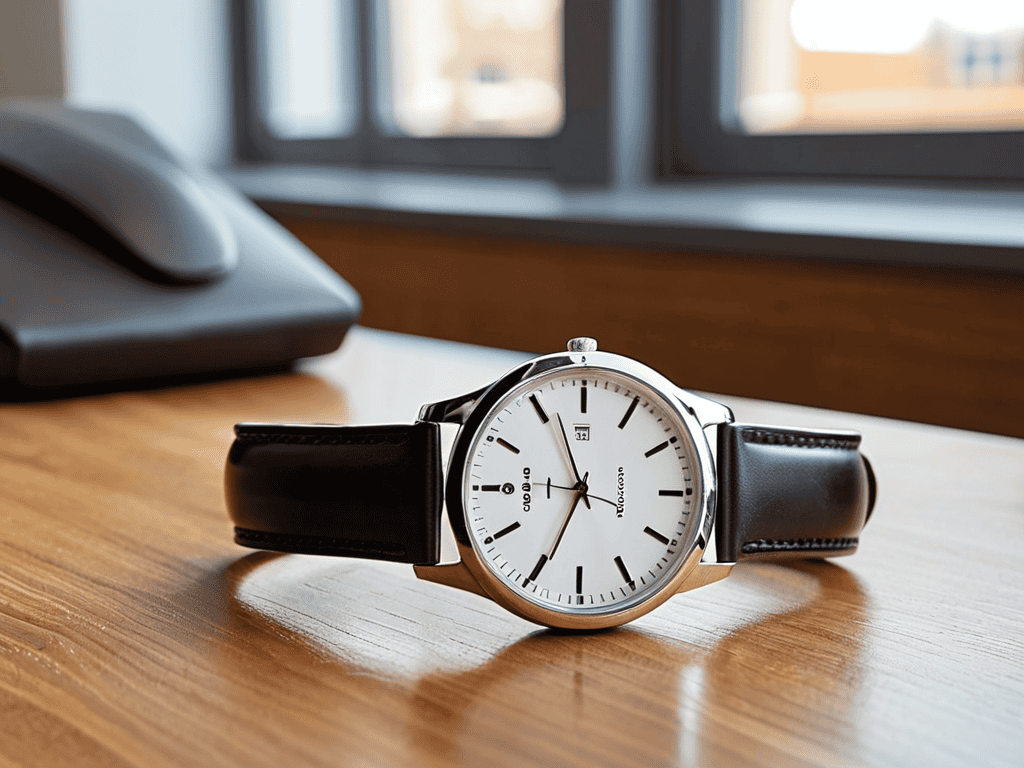I still remember my first job interview like it was yesterday – I was a nervous wreck, fumbling over my words and struggling to make a good impression. But what I’ve learned since then is that nailing an interview isn’t about being perfect, it’s about being prepared. That’s why I want to share my top interview tips with you, to help you avoid the mistakes I made and land your dream job. For years, I’ve been told that the key to acing an interview is to just “be yourself,” but let’s be real, that’s not very helpful when you’re sitting in a room with a stranger, trying to convince them that you’re the best fit for the job.
In this article, I’ll give you the honest, no-hype advice you need to succeed in your next interview. You’ll learn how to research the company, practice your responses to common questions, and make a lasting impression on the interviewer. My goal is to provide you with practical interview tips that you can actually use, not just generic advice that sounds good but doesn’t really help. By the end of this article, you’ll be equipped with the knowledge and confidence you need to take your interviews to the next level and start landing the jobs you want.
Table of Contents
Guide Overview: What You'll Need

Total Time: 1 hour 30 minutes
Estimated Cost: $0 – $0
Difficulty Level: Easy
Tools Required
- Pen (for taking notes)
- Paper (for preparing questions)
Supplies & Materials
- Business Attire (for making a good impression)
- Copies of Resume (in case extras are needed)
Step-by-Step Instructions
- 1. First, do this: research the company to understand its mission, values, and culture, which will help you tailor your responses and show your genuine interest in the position, and make sure you know the company’s history, its products or services, and its target audience, as this will give you an edge over other candidates.
- 2. Next, review the job description carefully and make a list of the key qualifications and responsibilities, this will help you understand what the interviewer will be looking for in a candidate, and prepare examples of how your skills and experiences match the requirements, which will make your answers more convincing and relevant.
- 3. Then, prepare your stories: think about your past experiences and accomplishments, and prepare examples that demonstrate your skills and achievements, use the STAR method to structure your stories: Situation, Task, Action, Result, this will help you provide clear and concise answers that showcase your abilities.
- 4. After that, practice your responses to common interview questions, such as “Why do you want to work for this company?” or “What are your strengths and weaknesses?”, practice your tone, pace, and body language in front of a mirror or with a friend, which will help you feel more confident and comfortable during the actual interview.
- 5. Next, plan your logistics: make sure you know the location of the interview, the time, and the date, and plan to arrive 10-15 minutes early, which will give you time to collect your thoughts, and make a good impression on the interviewer, also, prepare any materials you may need, such as copies of your resume or references.
- 6. Additionally, work on your body language: make sure you maintain eye contact, smile, and use open and confident gestures, avoid fidgeting, crossing your arms, or leaning on the table, which can give the impression that you are nervous or defensive, and practice using positive and enthusiastic tone of voice.
- 7. Finally, follow up: after the interview, send a thank-you note or email to the interviewer, expressing your gratitude for the opportunity and reiterating your interest in the position, this will show that you are polite, professional, and genuinely interested in the company, and will help keep you top of mind for the interviewer.
Mastering Interview Tips

To truly master the art of interviewing, it’s essential to be aware of common pitfalls that can make or break your chances. One of the most significant mistakes is not preparing for behavioral interview questions, which can leave you stumbling over your words and appearing unconfident.
As you’re working on perfecting your interview skills, it’s also important to think about the little things that can make a big difference, like what you wear to the interview. Your outfit can say a lot about your personality and attention to detail, so make sure you’re dressing to impress. For some great tips on how to create a professional wardrobe without breaking the bank, you can check out resources like casualaustralia, which offers a wide range of stylish and affordable clothing options that can help you make a great first impression. By taking the time to consider your attire and presentation, you can feel more confident and prepared to take on the interview and showcase your skills.
When it comes to salary negotiation strategies, many people struggle to find the right balance between being assertive and being respectful. Doing your research beforehand is crucial to understanding the market value of your role and making a strong case for your desired salary.
In addition to preparing for the interview itself, phone interview preparation and follow-up emails can also make a significant difference in the outcome. By practicing your responses and sending a polite and timely follow-up email, you can leave a lasting impression on the interviewer and increase your chances of landing the job.
Avoiding Common Interview Mistakes
When it comes to interviews, it’s the little things that can trip you up. Avoiding common mistakes can make all the difference between landing the job and being left in the dust. One major faux pas is showing up late – it’s a surefire way to get off on the wrong foot. Make sure to plan your route, check for traffic updates, and leave a little extra time to account for any unexpected delays.
By being mindful of these potential pitfalls, you can focus on showcasing your skills and personality, rather than being derailed by avoidable errors. Remember, it’s all about making a strong impression and demonstrating your professionalism.
Body Language for Confidence Boost
To exude confidence, it’s essential to focus on your body language. Maintain eye contact with the interviewer, but avoid staring aggressively. A gentle, occasional smile can go a long way in showing your enthusiasm for the role. Sit up straight and keep your hands visible on the table, as this conveys openness and honesty. Avoid fidgeting or crossing your arms, as these can give the impression of nervousness or defensiveness.
By being mindful of your non-verbal cues, you can project a sense of self-assurance and poise. Remember, confidence is not just about how you feel, but also about how you appear to others. Make a conscious effort to own the space and show the interviewer that you’re capable and enthusiastic about the opportunity.
From Prep to Pro: 5 Essential Interview Tips to Get You Hired

- Research the company like you’re trying to solve a mystery – know their history, mission, values, and current projects to show your genuine interest
- Practice your storytelling skills to turn your experiences into compelling narratives that highlight your skills and accomplishments
- Dress for success, but also for the company culture – you want to make a great impression, not stick out like a sore thumb
- Prepare smart questions to ask the interviewer, like what the biggest challenges of the role are or how the company approaches professional development
- Follow up with a thank-you note or email after the interview to express your gratitude and reiterate your interest in the position
Key Takeaways to Nail Your Interview
Nailing the interview starts with thorough preparation, including researching the company and practicing your responses to common questions
Mastering your body language is crucial – maintain eye contact, use open and confident gestures, and make sure your non-verbal cues match your verbal messages
By avoiding common mistakes, such as talking negatively about previous employers or failing to ask insightful questions, you can ensure a positive and lasting impression on your interviewer
Nailing the Interview
An interview is not a test of how well you can recall your resume, but a chance to show how your story intersects with the company’s future.
Alexandra Wright
Conclusion: Landing Your Dream Job
So, you’ve made it through the guide – congratulations! You now know the basics of interview preparation, from researching the company to avoiding common mistakes. You’ve also learned how to boost your confidence with positive body language and how to master those tricky interview questions. Remember, it’s all about being genuine and authentic in your approach, showing the interviewer that you’re not just a good fit for the job, but also a great cultural match for the company. By following these interview tips, you’ll be well on your way to making a fantastic impression and increasing your chances of landing your dream job.
As you head into your next interview, keep in mind that it’s not just about showcasing your skills and experience, but also about telling your story and connecting with the people you’ll be working with. Don’t be afraid to show your passion and enthusiasm for the industry and the role – it’s often what sets top candidates apart from the rest. So, take a deep breath, be yourself, and go out there and crush it! With persistence, dedication, and the right mindset, you’ll be signing that job offer in no time.
Frequently Asked Questions
What are some common interview questions I should be prepared to answer?
So, you wanna know the common interview questions, right? Be ready to talk about your strengths, weaknesses, and why you’re a great fit for the company. They’ll probably ask about your past experiences, career goals, and how you handle tough situations. Brush up on those, and you’ll be golden!
How can I effectively showcase my skills and experiences during an interview?
So, you want to showcase your skills and experiences like a rockstar? Be ready to give specific examples from your past, and clearly explain how they can be applied to the role you’re interviewing for – it’s all about connecting the dots and demonstrating your value.
What are some tips for following up with the interviewer after the interview to increase my chances of getting hired?
So, you wanna know the secret to a solid follow-up? Send a thank-you note or email within 24 hours, reiterating your interest in the role and the company – it’s a simple move that shows you’re genuinely stoked about the opportunity.
